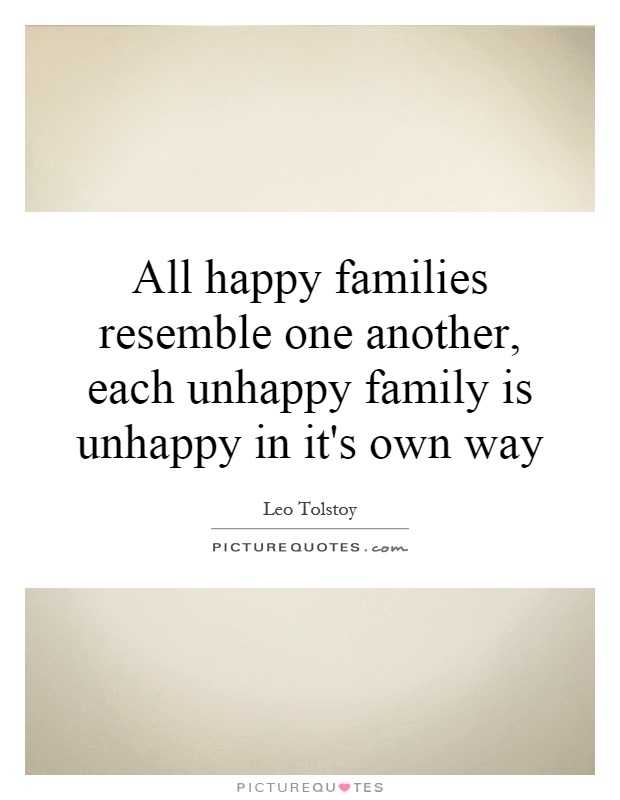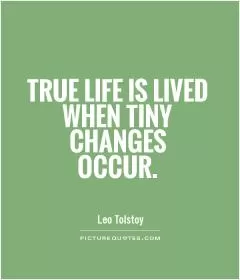All happy families resemble one another, each unhappy family is unhappy in it's own way

Happy Family QuotesFamous Quotes About FamilyFamily Is QuotesAbout Family QuotesUnhappy Family QuotesLeo Tolstoy Quotes
All happy families resemble one another, each unhappy family is unhappy in it's own way
Leo Tolstoy, one of the greatest novelists in Russian literature, is known for his deep exploration of human nature and relationships. In his famous novel "Anna Karenina," Tolstoy opens with the iconic line: "All happy families resemble one another, each unhappy family is unhappy in its own way." This statement sets the tone for the rest of the novel, as Tolstoy delves into the complexities of family dynamics and the consequences of unhappiness.Tolstoy's assertion that happy families are all alike suggests that there is a certain formula or recipe for happiness within a family. Perhaps it is the presence of love, understanding, and communication that leads to a harmonious and contented family life. In contrast, unhappy families are depicted as being unique in their unhappiness, each facing their own set of challenges and conflicts. This idea is exemplified through the characters in "Anna Karenina," as each family struggles with their own issues and ultimately faces their own tragic fate.
The novel follows the lives of several families, each dealing with their own struggles and conflicts. The Karenin family, for example, is portrayed as unhappy due to the lack of love and communication between Anna and her husband, Karenin. Their marriage is strained by Anna's affair with Count Vronsky, leading to jealousy, betrayal, and ultimately tragedy. In contrast, the Oblonsky family, despite facing their own challenges, manages to find happiness through forgiveness and reconciliation.
Tolstoy's exploration of family dynamics in "Anna Karenina" reflects his belief that the key to a happy family lies in mutual respect, understanding, and communication. He suggests that happy families are able to navigate through life's challenges together, while unhappy families are often torn apart by their own internal conflicts and struggles. By examining the intricacies of family relationships, Tolstoy invites readers to reflect on their own experiences and consider what it truly means to be happy within a family unit.












 Friendship Quotes
Friendship Quotes Love Quotes
Love Quotes Life Quotes
Life Quotes Funny Quotes
Funny Quotes Motivational Quotes
Motivational Quotes Inspirational Quotes
Inspirational Quotes